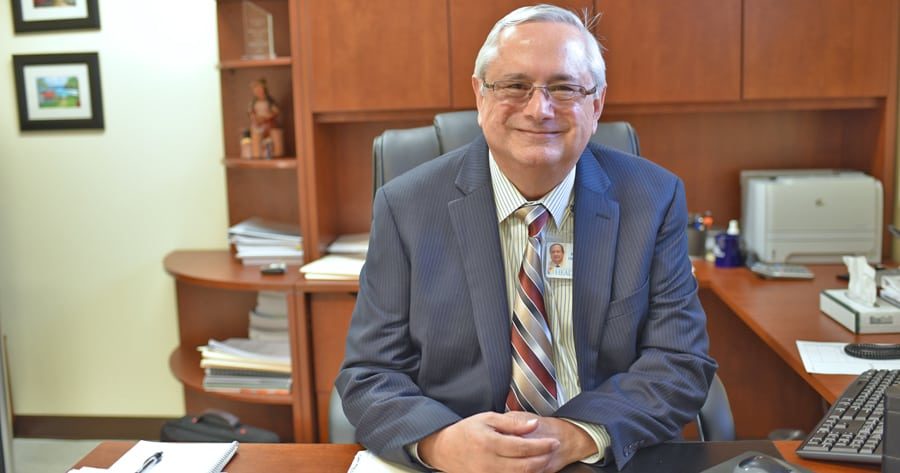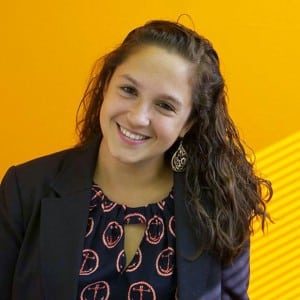
Home » Tri-Cities Community Health CEO retires, leaves clinic on better footing
Tri-Cities Community Health CEO retires, leaves clinic on better footing

October 14, 2016
When Al Cordova arrived at Tri-Cities Community Health five years ago, the clinic was cash strapped, patients were waiting nearly two months to see a doctor and staff turnover was high.
When the CEO retires from the Pasco-based clinic this month, he will leave behind a healthier agency that’s better equipped to serve a growing community.
“He’s really leaving quite a legacy,” said Martin Valadez Torres, senior director of Strategy and Business Development at Tri-Cities Community Health. “Al has done an excellent job turning around our organization, expanding access and service lines, and really making Tri-Cities Community Health an important and valuable asset to the Tri-City community — particularly low-income and underserved individuals.”
The clinic primarily serves a low-income population as a federally qualified health center, receiving state and federal money to provide health care to low income people with limited or no insurance.
The clinic serves 24,517 unique patients a year and employs 296 people.
Turning clinic around
Cordova’s calm demeanor served him well as a Navy pilot in Vietnam and again when he stepped in to overhaul the clinics in 2011 as the organization was struggling financially and operationally.
Tri-Cities Community Health had enough cash to cover one payroll, roughly $400,000.
Now the organization has about $11 million in reserves, which Cordova said has provided funding to expand and improve services.
“I began to learn there were some significant problems. I walked into a set of clinics that had little to no money, access was terrible, patients were waiting seven weeks to see a provider, they had high turnover of people in leadership roles,” he said.
“I didn’t think I was going to come here and coast, but I didn’t think I was going to roll up my sleeves and turn around an organization,” he said with a laugh. “Those people who usually turn around organizations tend to be in their 40s and 30s, not an old guy like me.”
Cordova immediately recruited and hired more doctors and nurse practitioners, which reduced patient wait times to two weeks. He also oversaw a comprehensive and aggressive rebranding and marketing effort to bring in more patients.
Under his tenure, the clinic successfully petitioned for Affordable Care Act funding seven out of eight times, equaling $14 million in grant funding.
With the additional money, the clinic expanded existing facilities, relocated and expanded its Kennewick clinic, opened a new clinic in Richland, relocated its walk-in primary care, expanded dental services, opened two school-based health clinics in Pasco and Kennewick, and hired enrollment specialists to help individuals access health insurance.
And Cordova’s leadership hasn’t gone unnoticed.
Most recently he was selected as Community Leader of the Year by the Tri-Cities Hispanic Chamber of Commerce, and under his leadership, TCCH was recognized as Organization of the Year in 2015.
He has served on the board of Chaplaincy Health Care, a hospice program, and Community Health Network of Washington, as well as several other boards.
He attributes his success to his ability to surround himself with talented people.
“My success throughout my career is partly due to me surrounding myself with very competent managers,” Cordova said. “I am able to attract persons that are doing very well and want to be involved in organizations that are going places.”
Ready to retire — again
Cordova plans to retire in Ft. Worth, Texas, where he plans to do consulting work and teach.
It’s not the first time he’s tried retirement.
In 2011, Cordova ended a long and productive career in health care administration before joining the Tri-City clinic. But after a couple of months he decided to get back to work.
“One thing about retirement is, if you want to keep your mind active, you need to have a plan. Well, I didn’t have a plan. I just went home, and there is only so much you can do in fiddling in the pool and the backyard,” he said.
He put in his resúme for various federally qualified health centers in the U.S. and ended up in the Tri-Cities.
From pilot to health care
Cordova received his bachelor’s in aeronautical engineering from Utah State University to pursue a lifelong dream of being a Navy pilot. But after serving six years that included a tour in Vietnam, he realized he was more of a lover than a fighter, he said.
He comes from a long line of caregivers, so he decided he would pursue a career in health care.
He went back to school to get his master’s in health administration from Duke University’s Fuqua School of Business. He would later go on to get his doctorate in public health administration from University of LaVerne in California.
He’s held leadership roles in health care organizations for more than 35 years. He started at Kaiser Permanente in Los Angeles where at the age of 29 he was senior vice president.
After eight years with Kaiser, he accepted a position at Harvard Community Health Plan.
In search of a more lucrative career path, he decided to manage independent specialist medical groups.
Ten years ago, he decided to shift priorities.
“I decided I wanted to dedicate the rest of my career serving the underserved, people without insurance, low-income or underinsured,” Cordova said. “I wanted to see what I could do to help those persons and families that are most vulnerable. That led me to look for work in community health centers.”
In 2006, he accepted a position managing 18 ambulatory care clinics for John Peter Smith Health Network in Ft. Worth, Texas. When he left Ft. Worth he was overseeing almost 50 clinics, including the largest network of school-based clinics in the country.
His biggest motivation for his career change was his upbringing.
Cordova immigrated to the U.S. from Ecuador at the age of 11. His family settled in Queens, New York, where his mother, who grew up in Ecuador orphaned and destitute, would slowly work and get an education.
“I know what it is to be poor, I know what it is to be struggling and to be living day to day,” he said. “I’ve come a long way since then, my family has come a long way.”
His mother has served as his inspiration.
“My mother is my hero. She didn’t have much of an education, but she didn’t give up, she was driven to make a better life for herself. After she came to this country she started going to school and eventually became a nurse,” he said.
“My mother always thought that I would amount to something, that I would be somebody, that gave me the confidence I needed in my career,” he said.
What’s next for the clinic?
Jennifer Robinson, chief operating officer for Tri-Cities Community Health, will transition into the role of CEO.
The clinic’s board of directors conducted an internal review of several candidates before selecting her.
Cordova’s last day was Oct. 14.
Local News
KEYWORDS october 2016




